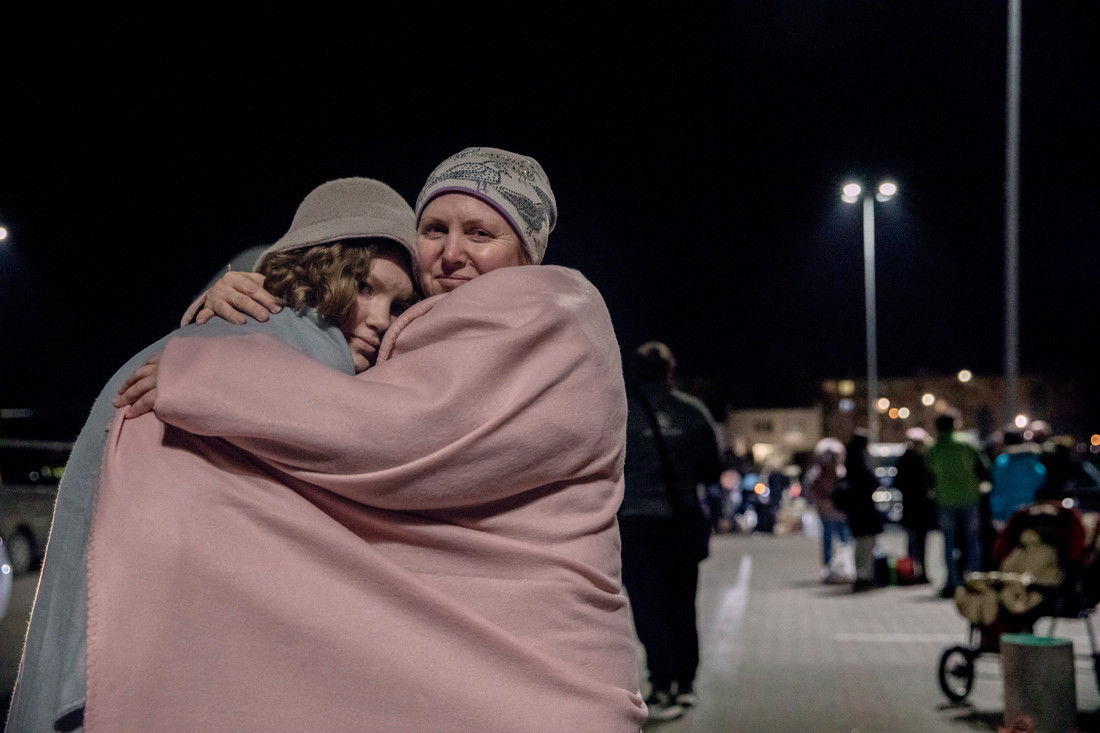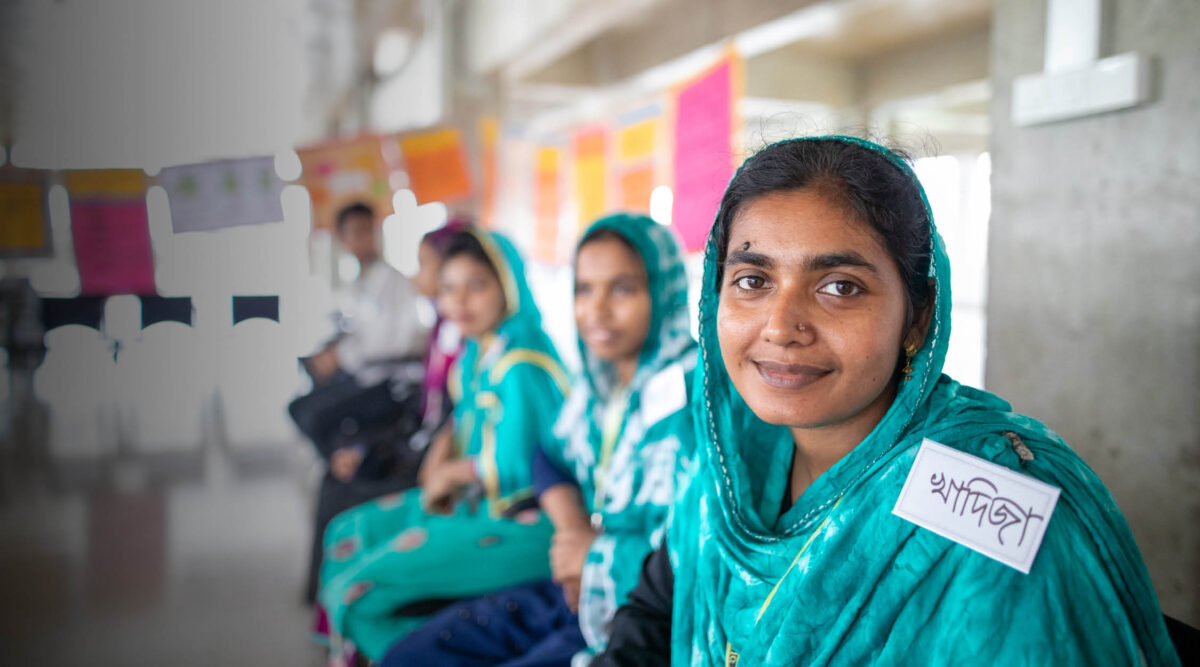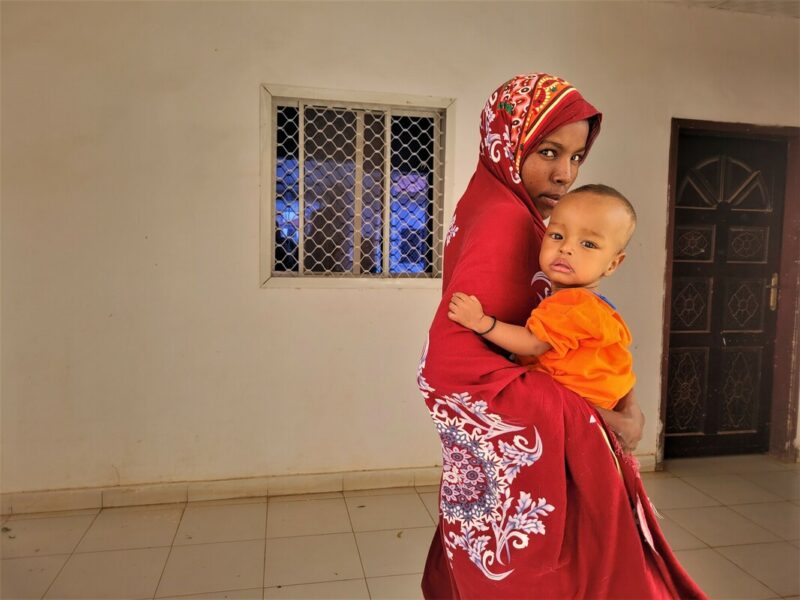“If the war continues, nothing will be left. It is a bloody war, a monstrous war,” says Kotove, 45, who fled Ukraine with her 12-year-old daughter in the midst of a looming humanitarian catastrophe. On a freezing night at the border, the mother and daughter tried to keep each other warm under a single blanket.
“My daughter is just crying,” Kotove says.
They fled while bombs were falling. Kotove’s mother had to stay behind in Ukraine as tanks advanced on their town. She remains trapped there.
As the humanitarian situation in Ukraine gets worse by the hour, families are desperately trying to escape to neighbouring countries. As men are staying in Ukraine to defend their country, women with children are forced to make the journey to safety on their own. When they reach the crowded border crossings, some lines to cross over are stretching longer than 10km — meaning mothers with babies in their arms have to wait as long as two days and nights in the freezing cold.
Christina, aged 4, and her mother Maria have safely escaped Ukraine. But now, like so many refugees arriving in new countries, the shock of the journey lingers, along with the uncertainty of what’s next.
“What we’re going to do now, I don’t know yet,” Maria says. “The war is everywhere.”
Women and girls are at particular risk in warzones. And when they’ve lost their homes and fled their country, the rates of gender-based violence, exploitation and discrimination increase — while access to vital health services and support networks all but disappear.
CARE is providing emergency aid through our partner organisation People in Need in Ukraine and its neighbouring countries. The first aid deliveries have already arrived in Ukraine, and refugees are being cared for at border crossings. Every day, hundreds more exhausted mothers and children arrive, freezing and hungry.
“Many have to deal with terrible war experiences,” says Andrea Barschdorf-Hager, Executive Director of CARE Austria. “Psychosocial help is very important. People need someone they can talk to. We are in a war situation. We need to make the refugees feel welcome and let them know they have a safe place.”
CARE’s partner organisations are working to ensure border crossings are equipped with heated tents where the exhausted mothers and children can warm up and rest, and be greeted with warm tea and a hot meal.
Work is also underway to ensure that sanitation facilities such as portable toilets are set up at crossings, as well as specialised teams trained to provide counselling and psychosocial assistance to help people deal with the trauma of war.
Images © Adrienne Surprenant /MYOP


